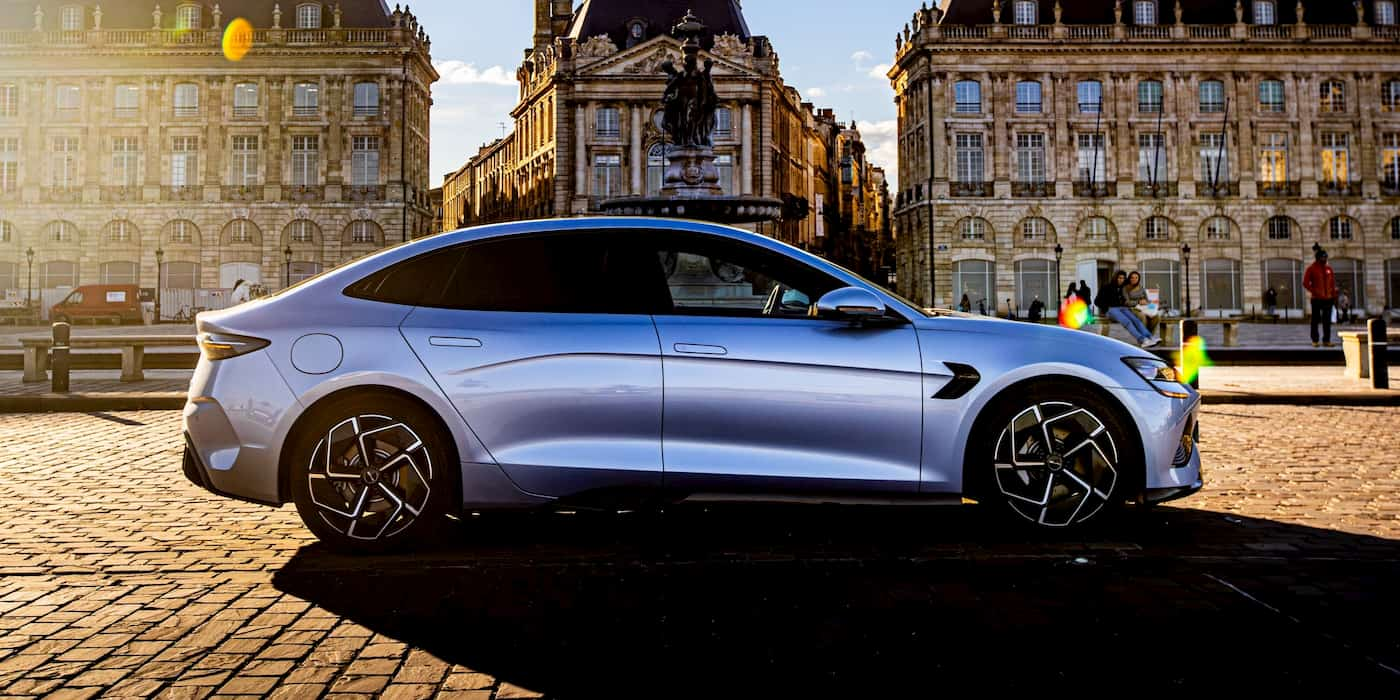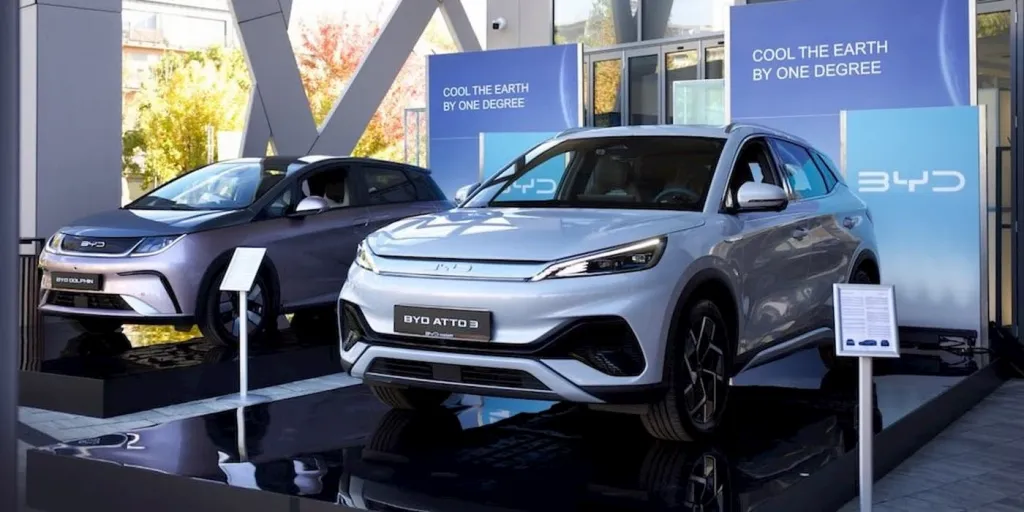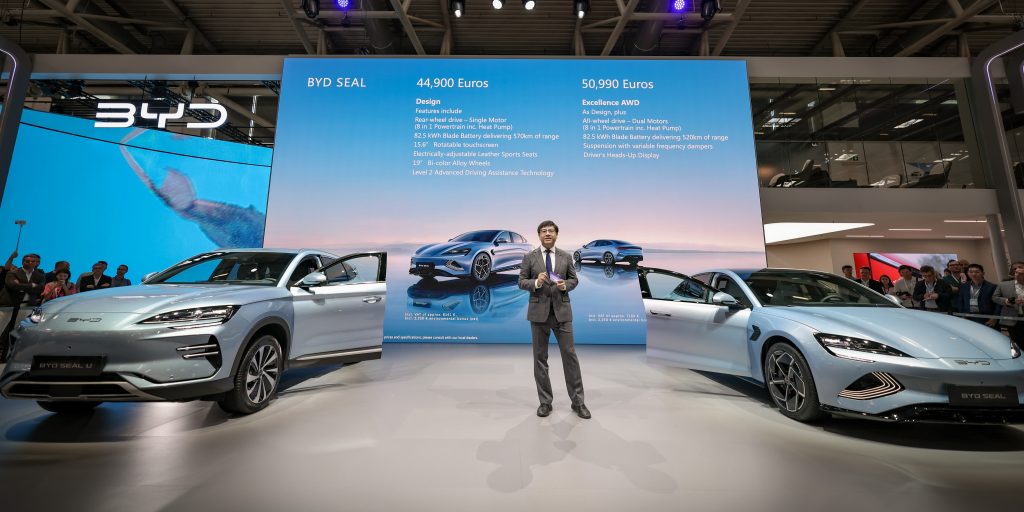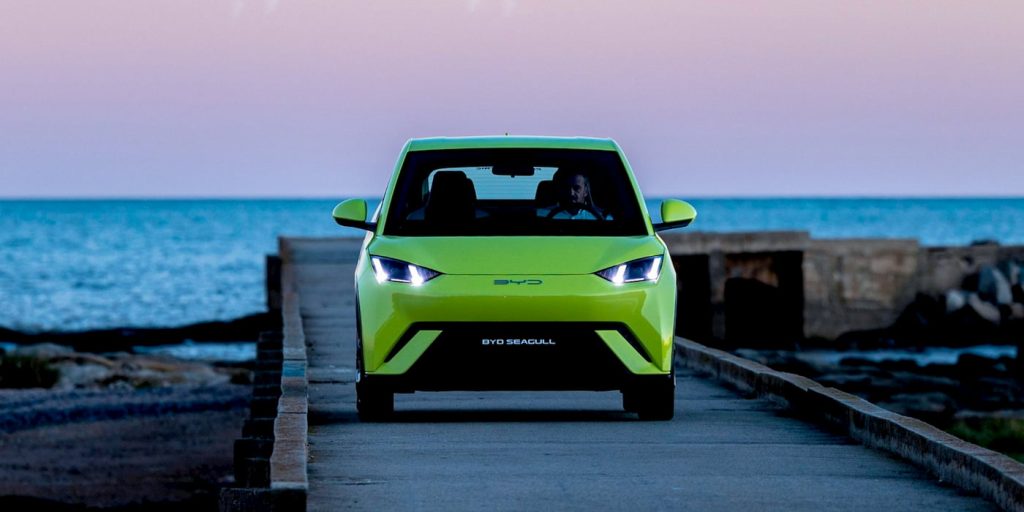
China’s leading EV maker, BYD, is making big moves to gain a foothold in Europe. BYD’s latest deal could spell big trouble for Volkswagen in Germany.
BYD is taking over its distributor in Germany, allowing it to sell its cars directly in Europe’s largest auto market.
On Friday, the Chinese auto giant officially signed an agreement with Hedin Mobility Group to buy out its subsidiary, Heden Electric Mobility.
Over the past two years, Heden Electric has imported vehicles and spare parts for BYD to sell in Germany. However, the move will give it more control over pricing and other key parts of distribution. BYD will now be able to sell its cars directly to buyers in Germany and set prices on its own terms.
“Together with its retail partners, BYD will further extend outstanding customer services and warranty support in Germany,” BYD’s executive vice president, Stella Li, said.
In addition to gaining control of distribution, BYD will also take over two flagship stores in Stuttgart and Frankfurt, Germany.

BYD is on the move in Germany
Anders Hedin, CEO of Hedin Mobility Group, explained, “The foundation is now in place to scale up volumes, and we look forward to continuing this journey in Germany together with BYD as a dealer.”
The deal is expected to close in the fourth quarter of 2024. As part of its long-term partnership, Hedin will still act as BYD’s dealer and retailer in the Swedish market.

Although no prices were revealed, Germany’s Handelsblatt reported it could be in the “low double-digit million” range with outstanding debts demanded by Hedin.
BYD’s big move is part of its ambitious plans to expand in Europe. BYD aims to control 5% of the European auto market by 2026. Germany will be a crucial part of achieving this. However, as of the end of July, the Chinese automaker accounted for a minor 0.1% with only 1,432 vehicle registrations in Germany.

That’s a far cry from the 120,000 BYD aims to sell in the country by 2026. Perhaps, as Hedin’s CEO claimed, more control over pricing and distribution will help ramp up output.
BYD is among several Chinese automakers, including XPeng and SAIC’s MG, with plans to expand in Europe. Meanwhile, EVs from China accounted for just 9.9% of European electric car sales last month.

The move comes after the EU announced plans last week to cut BYD’s EV import rate from China to 17% from 17.4%.
Electrek’s Take
Although BYD has struggled to gain traction in Europe, sales are expected to pick up as new models roll out.
Taking control over distribution in Germany is a big win for the company. BYD can now set prices with more flexibility on availability.
According to the latest European Automobile Manufacturers’ Association (ACEA) figures, EV registrations in Germany fell 36.8% last month. The drop dragged Europe’s EV market share down to 12.1% from 13.5% a year ago.
Volkswagen was among those with lower sales in July (-2.2%). The Volkswagen brand had 6.1% fewer vehicle registrations with its market share slipping to 10.8% in July from 11.1% a year ago.
The lower sales come as Volkswagen aggressively seeks to cut costs. It’s even considering closing Audi’s assembly plant in Brussels, which would be its first plant closure in 26 years.
Meanwhile, Volvo led Europe’s new car registration growth, with over 22,000 vehicles sold in July, up 36.7% year over year. Volvo’s cheapest EV, the EX30, is the main growth driver, with over 47,100 models registered through July.
With the ability to set prices, BYD may be able to match Volvo’s growth. According to research from Rhodium Group, BYD earns 14,300 euros ($15,400) on each Seal U model sold in Europe. That’s even more than in China with a 1,300 euro ($1,400) profit per unit sold.
Even with higher tariffs, BYD has the flexibility to offer lower prices. Does Volkswagen have the freedom? It’s not likely.
It will be interesting to see how the deal impacts BYD’s sales in Germany next year. After topping Honda and Nissan to become the seventh largest automaker globally in Q2, BYD looks to overseas markets to boost growth.
Source: Handelsblatt, Hedin Mobility Group
